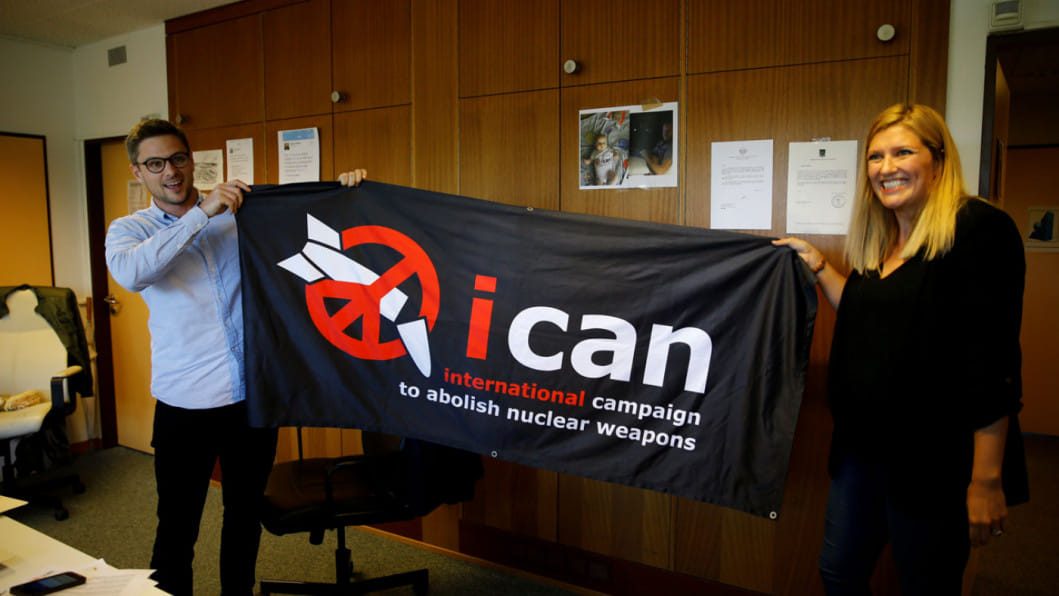Anti-nuclear campaign ICAN wins Nobel Peace Prize

The International Campaign to Abolish Nuclear Weapons (ICAN) won the Nobel Peace Prize on Friday, as the Norwegian Nobel Committee warned that the risk of a nuclear conflict is greater than for a long time.
ICAN describes itself as a coalition of grassroots non-government groups in more than 100 nations. It began in Australia and was officially launched in Vienna in 2007.
BREAKING NEWS The 2017 Nobel Peace Prize is awarded to the International Campaign to Abolish Nuclear Weapons (ICAN) @nuclearban #NobelPrize pic.twitter.com/I5PUiQfFzs
— The Nobel Prize (@NobelPrize) October 6, 2017
"We live in a world where the risk of nuclear weapons being used is greater than it has been for a long time," said Berit Reiss-Andersen, the leader of the Norwegian Nobel Committee.
In July, 122 nations adopted a UN Treaty on the Prohibition of Nuclear Weapons, but nuclear-armed states including the United States, Russia, China, Britain and France stayed out of the talks.
Watch the very moment the 2017 Nobel Peace Prize is announced! #NobelPrize pic.twitter.com/H0AtcRU7tn
— The Nobel Prize (@NobelPrize) October 6, 2017
The Nobel prize seeks to bolster the case of disarmament amid nuclear tensions between the United States and North Korea and uncertainty over the fate of a 2015 deal between Iran and major powers to limit Tehran's nuclear programme.
US President Donald Trump has called the Iran agreement the "worst deal ever negotiated" and a senior administration official said on Thursday that Trump is expected to announce soon that he will decertify the landmark pact.

 For all latest news, follow The Daily Star's Google News channel.
For all latest news, follow The Daily Star's Google News channel. 



Comments